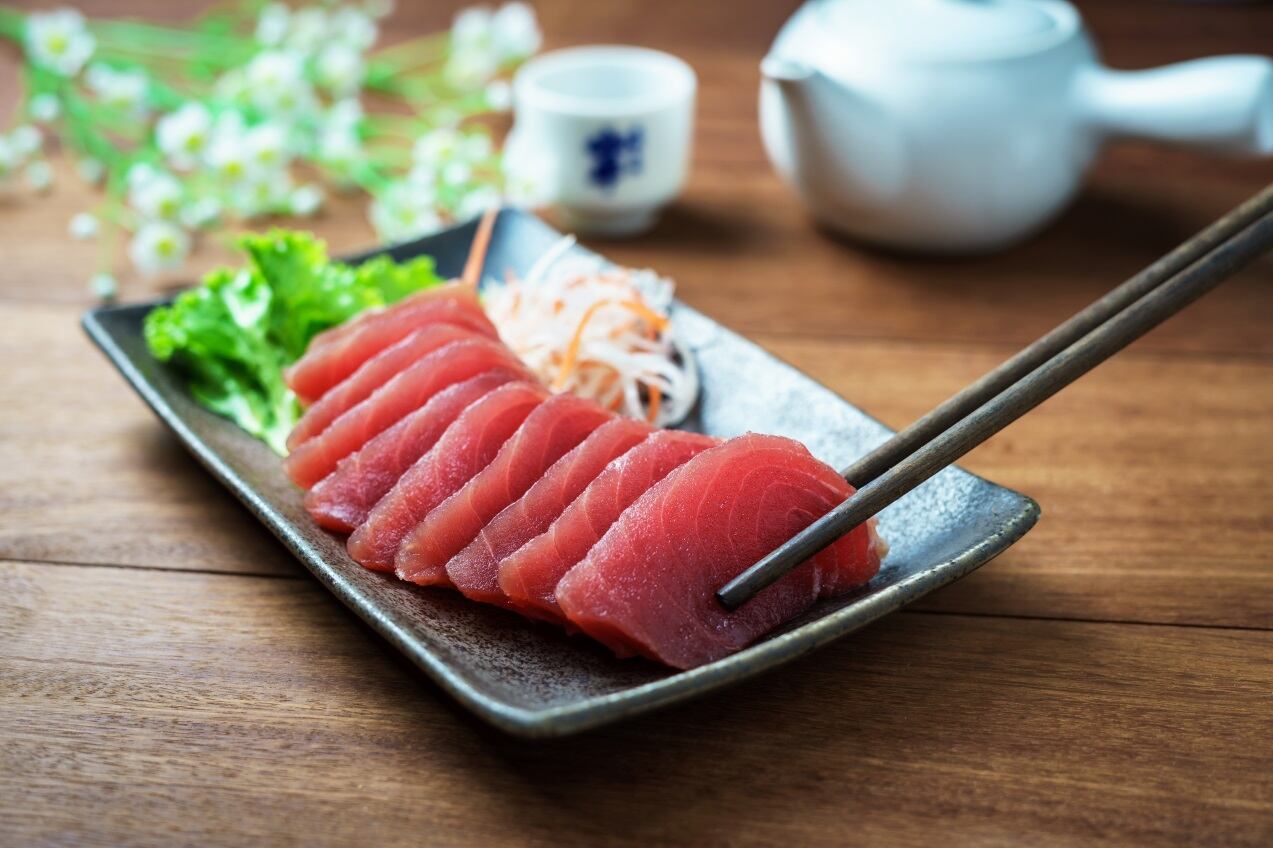The seafood supply chain is particularly vulnerable to fraud. According to 2018 data from the European Commission’s Food Fraud Network, seafood is the category with the highest number of suspected fraud cases in the region.
The majority of incidents are related to mislabelling, species substitution and incomplete documentation. However, as the Food Fraud Network’s case study of tuna fraud demonstrated, fish fraud also carries health risks.
“The illicit practices included species substitution and fraudulently selling tuna intended for canning as fresh. In this case, the tuna intended for canning was illegally treated with chemical substances that altered its colour to give the misleading impression of its freshness,” the Food Fraud Network explained.
In this instance, injection techniques or immersion in a nitrite solution are used to reverse the brown colour caused by oxidisation over time.
“A high level of histamine can lead to allergic syndrome and nitrites may lead to formation of nitrosamines [which are carcinogenic].”
Seafood fraud is big business. In the case of tuna alone, European authorities estimate the financial gain of selling tuna frozen in brine and then treated with chemicals as fresh totals €200m a year.

A question of confidence
Seafood is particularly vulnerable to fraud because it is a high-value industry but one whose complex global supply chain lacks transparency and traceability. Raw Seafoods VP of marketing Dan McQuade describes the seafood sector as ‘one of the world’s most complex supply chains’.
“This makes it extremely difficult to determine exactly where a particular shipment of fish or scallops came from,” he suggested.
A lack of transparency – coupled with a high incidence of fraud – serve to undermine public confidence in the seafood sector, McQuade believes. “These factors contribute to what we in the industry call the fear of fish. In part because they’re concerned about food safety and provenance, consumers buy seafood less often.”
The US-based seafood group believes that blockchain can tighten up the supply chain and give consumers confidence by ‘bringing an end to not knowing what’s really on your dinner plate’.
“Digitizing the food supply chain and creating an immutable record of each catch, we could solve a trifecta of the seafood industry’s most pressing problems,” McQuade suggested.
According to IBM, blockchain can also enhance fisheries management. From a sustainability standpoint, the data gathered and stored on blockchain can help fishing boats source more strategically, providing boat owners a direct connection to the ‘last mile’ in the distribution channels, the tech group claimed.
Transferable tech: Blockchain's 'immutable' data
Suzanne Livingston, IBM Food Trust operating director, said that Raw Seafoods approached IBM to utilise its blockchain technology after seeing the progress being made in other categories.
“Raw Seafoods saw the work that Walmart was doing around leafy greens traceability using Food Trust and came directly to IBM because they knew the scallop industry needed this same kind of transparency,” she told FoodNavigator.
“Their focus on a specialised part of the seafood industry gave us all a specific starting point from which to expand over time.”
The project initially focuses on US Atlantic scallop fisheries. With ‘immutable’, geo-specific data shared through IBM Food Trust, fishing boats will be able to plan catches more strategically to meet demand.
Initial participants in the new ecosystem include Santa Monica Seafoods, one of the largest seafood distributors in the Southwest. Restaurants including TAPS Fish House and Brewery in Orange County, CA and Santa Monica Seafoods Market & Cafes will be among the first to serve scallops traced using Food Trust.
Raw Seafoods is also ‘among the first’ companies to use IBM’s Food Trust consumer app, Livingston noted. “Raw Seafoods was eager to explore the technology and aggressively adopt the consumer app.”
The app is connected directly to the FoodTrust platform, which will allow consumers to access information about their scallops directly from the menu or point of sale in the retail locations by scanning a QR code.
Livingston stressed that this latest tie-up is part of IBM's broader ambition to promote transparency and traceability in the global seafood supply.
“IBM is already working with more than 170 participants globally. For seafood, we are tracing farm-raised shrimp from a producer in Ecuador, working with Walmart on shrimp imported from India, tracking Norwegian Salmon and pike from Denmark.”




